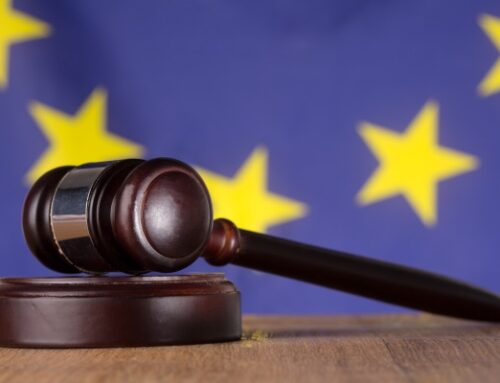Detlef Schmuck: “Surveillance in the cloud by US providers has long been the norm. But Apple is crossing a red line with surveillance in end devices. This puts hundreds of millions of iPhone owners under general suspicion of child pornography.”
“A dragnet by Apple on all end devices is almost like the combination of a presumed pipe dream by Erich Mielke and a nightmare by Georg Orwell.”
Hamburg, August 9, 2021 – “Apple is opening Pandora’s box,” rages data protection expert Detlef Schmuck against Apple’s announcement that in the future it will automatically examine photos on iPhones to determine whether they comply with the law. Apple had announced that with the new operating system iOS 15, all photos on iPhones would be subjected to an examination to determine whether they could be child pornography.
“This is like a permanent house search by a company”
“Child pornography is one of the most heinous crimes of all and it is right and important to take action against it, but it is still completely inappropriate to put hundreds of millions of iPhone owners under general suspicion and therefore search their private photo albums,” says Detlef Schmuck. He clarifies: “The monitoring of customer data in the cloud services of US providers has long been the norm, certainly not only at Apple. But Apple is going one step too far by subjecting customers’ end devices to constant monitoring. This is like a permanent house search by a private company. You have to remember: Most people have more or less their entire lives stored on their smartphones. It is the job of the public prosecutors, the police and the courts, in cases of suspicion, and only then, to authorize these digital house searches, to carry them out and to evaluate them in accordance with the applicable law. But a dragnet search by Apple on all end devices is almost like combining a presumed pipe dream of Erich Mielke and a nightmare of Georg Orwell.”
“We can never be sure anymore what spy software is running on our smartphones”
According to Detlef Schmuck’s assessment, Apple developed the algorithm for finding child pornography under pressure from U.S. authorities. He asks, “Who wants to prevent Apple or other U.S. corporations from using other search patterns to search for undesirable content in the future at the urging of other countries, such as China? In the U.S., they may search for child pornography; in other countries, they may search for texts critical of the regime. If Apple can’t be called back, we can never again be sure what spy software is secretly running on our smartphones and what it’s looking for.”
“Customer data belongs to customers and no one else,” Detlef Schmuck clarifies. He is the founder and CEO of the Hamburg-based data service TeamDrive, which offers so-called end-to-end encryption. Schmuck assures, “At TeamDrive, the data is so well protected that no one but the customers themselves can decrypt it, neither we as the operator of the service nor any authority in the world.” The TeamDrive CEO, like other data privacy advocates, fears that Apple will extend the photo correctness verification feature in the future to other information that should be encrypted end-to-end on the iPhone or in the iCloud.
“Dragnet searches on endpoints should be rejected on principle”
“A technology for dragnet searches on end devices should be rejected on principle, because it virtually encourages abuse and surveillance,” says Detlef Schmuck. He asks, “Who will prevent Apple from imposing further moral criteria on photos taken with the iPhone in the future?” and explains his fear as follows: “Today it is child pornography and we all agree to fight it. Tomorrow it may be Corona rule violations or drug abuse and some still agree. The day after tomorrow it’s animal cruelty or who knows what. All law-abiding citizens welcome punishment for these crimes. But we want to give that mandate to the prosecutors, the police and the courts in Germany, not to the U.S. company Apple.”
“Possibility to penetrate end devices would attract hackers like a magnet”
Moreover, the TeamDrive boss warns that in addition to Apple’s arbitrarily expandable censorship, such a control program could be boarded by hackers and used to penetrate the iPhones of hundreds of millions of people. “The ability to break into the handsets will attract hackers around the globe like a magnet,” he posits.
“Whether EU or Apple, everyone wants to invade our privacy”
Detlef Schmuck recalls the secret draft of a planned declaration by the EU Council of Ministers in the fall of 2020, according to which operators of end-to-end encrypted services were to be forced to hand over master keys to all customer data to the authorities. The TeamDrive CEO describes the title of the EU draft resolution at the time, “Security through encryption and security despite encryption,” as “completely misleading.”
“In fact, such a resolution would have dramatically worsened the level of security in the EU,” explains Detlef Schmuck and appeals to the public: “If we refuse to allow the EU Council of Ministers to soften end-to-end communication, we should certainly not allow Apple to do exactly that. Only seamless encryption without exceptions will ensure privacy in digital communications.” Under the resolution, EU member states would have been able to use their keys to tap into private conversations and other encrypted transmissions at any time and without detection. “This is exactly the privilege Apple now seems to want to grant itself,” Detlef Schmuck explains his fears.
For the future, data security expert Detlef Schmuck gives a rather gloomy outlook: “Regardless of whether it’s the EU or Apple, apparently the state and digital corporations alike are thirsting to gain access to the private data of citizens and consumers. We should pull out all the stops to preserve our privacy even in the age of digitalization.”





